I will NEVER forget the moment when Lia went into surgery. We were allowed to accompany her to the elevator, on her little hospital bed pushed by two nurses. It was the most difficult moment in our lives. The fear of never seeing her again was overwhelming. In her presence, I didn’t allow myself to have dark thoughts, but once the doors closed and Lia left, I collapsed. I clung to the shoulders of my partner Jeremy, who was also crying. This feeling of total helplessness came over me and I could only think of one thing to do to pass the time during these next four hours: go climbing to avoid thinking.
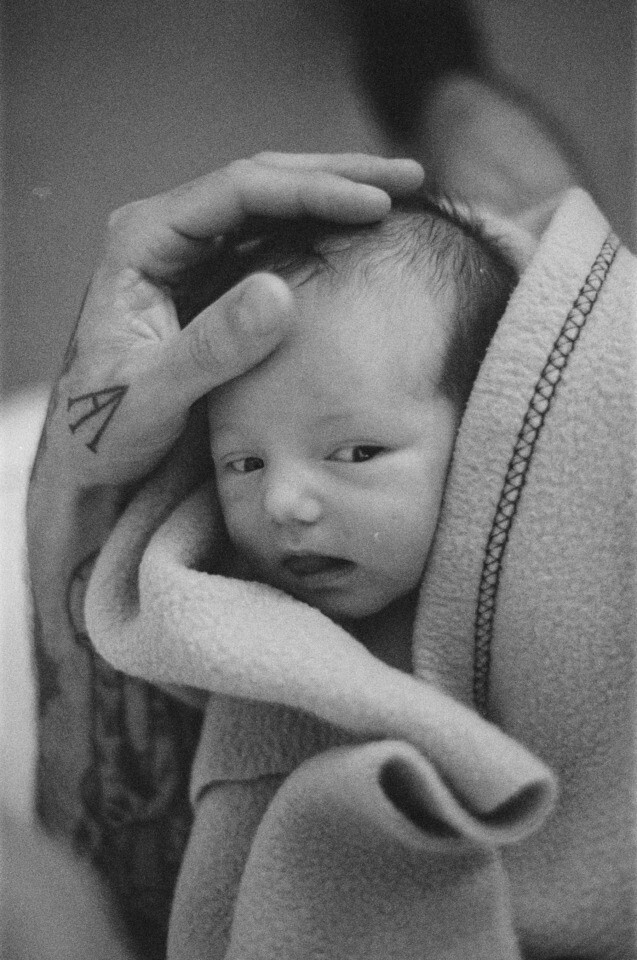
Lia was born with a heart defect. This was discovered on the second day of her life thanks to the treatment of jaundice at the maternity hospital in Bourg-Saint-Maurice.
You can imagine that this beginning was quite dramatic. Barely did she arrive on this earth, we were already confronted with the possibility of losing her. I felt like I was in a bad movie: ambulance heading to the neonatal unit in Grenoble, me sitting in the passenger seat, with our little Lia in the back in a neonatal care box, watched by two doctors. We had to leave Jeremy behind because there was no room in the ambulance. I called my big brother Arno crying on the road, something I do when I’m at the end of my rope. Arno is always very calm, he is a father of two, he was able to sympathize but also to talk to me calmly and with a clear mind and a pragmatic attitude.
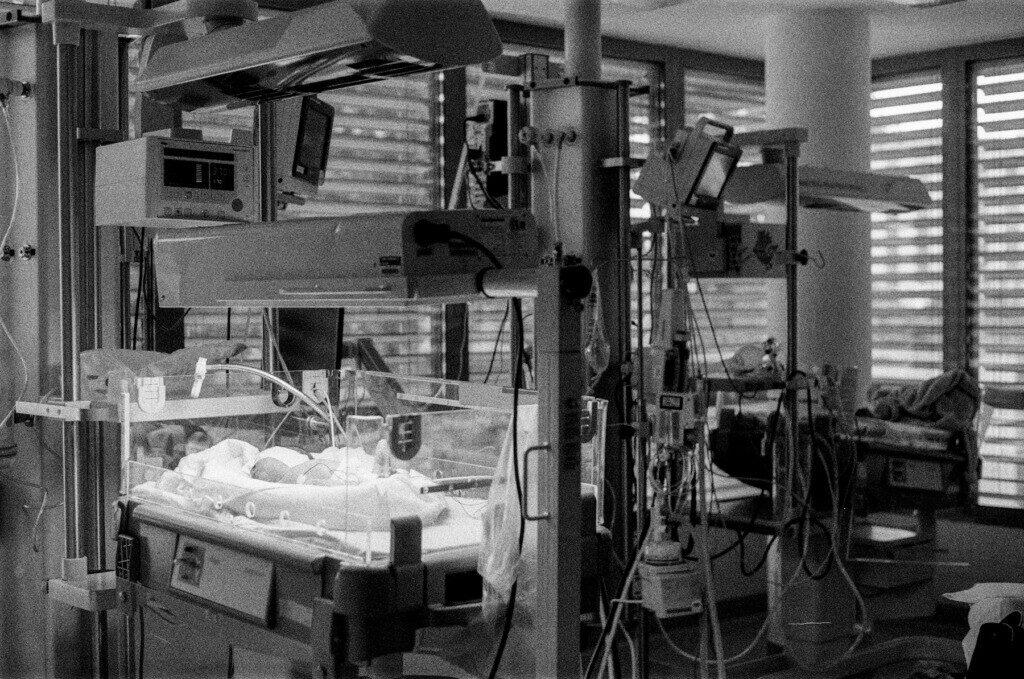
Once in Grenoble at the Neonat, the shock was even more severe: We had just moved from a very small maternity hospital to this large modern center, with medical equipment everywhere. I felt like fallen out of the little cocoon we had created during the birth, but at the same time I was relieved to know she was in good care. The cardiologist Dr. Lachaux identified an aortic valve malformation through an ultrasound. Instead of being tricuspid, it was unicuspid and quite narrow. These kinds of aortic malformations are quite common, 1% of newborns are born with a heart malformation, but when it happens to you, your world collapses.
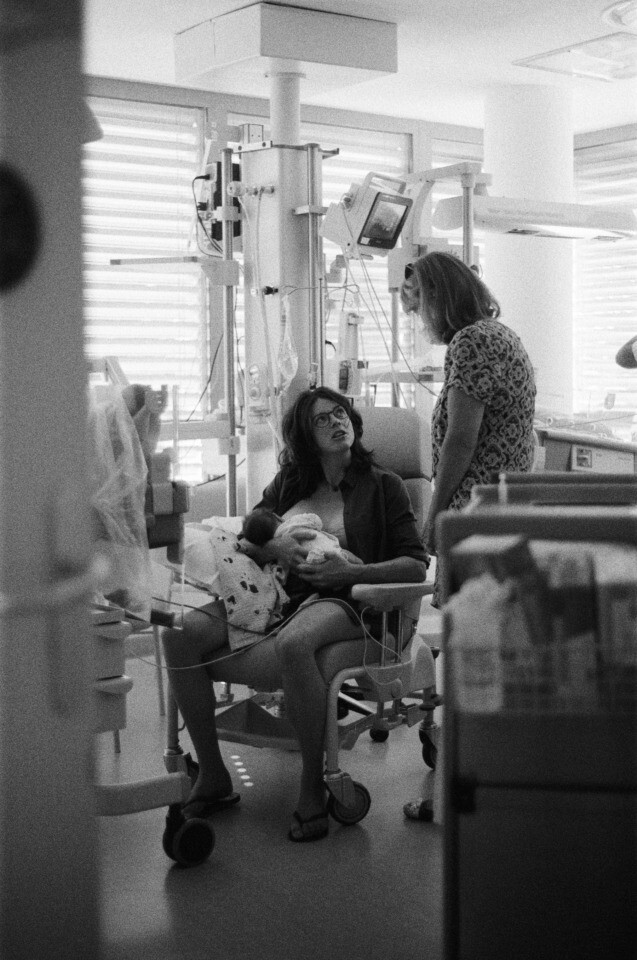
We had to stay two days in Grenoble where Lia was under surveillance 24/7. Jérémy managed to join us with his parents shortly after the cardiologist’s diagnosis. In spite of our great sadness and exhaustion, the maternal instinct had automatically settled in me. I had to breastfeed my little one, feed her every four hours, day and night. I had to give her love and send her positive thoughts. I was lucky enough that my delivery went so well, I didn’t have any injuries or fissures which allowed me to be there for her 100% in machine mode.
After two days we were able to leave the NICU. Lia was stable and in rather great shape, despite her issue. It was the diagnosis that was hard to swallow.
A malformation that remains for life, with a first open heart surgery in the first three months to improve the functioning of the valve. Then several operations until adulthood, always to fix the valve and then eventually replace it with an artificial valve once Lia would be done growing.
This diagnosis destroyed our dreams overnight: Our life was going to be shaped by visits to the hospital, with several heavy interventions, with a permanent fear of losing our child. We, who had planned to roam the world with her, to keep up our beautiful life in the open air, it all fell through and we were going to spend our life at home, close to a hospital.
Jeremy wanted to sell our Unimog Andrea, I stalled.
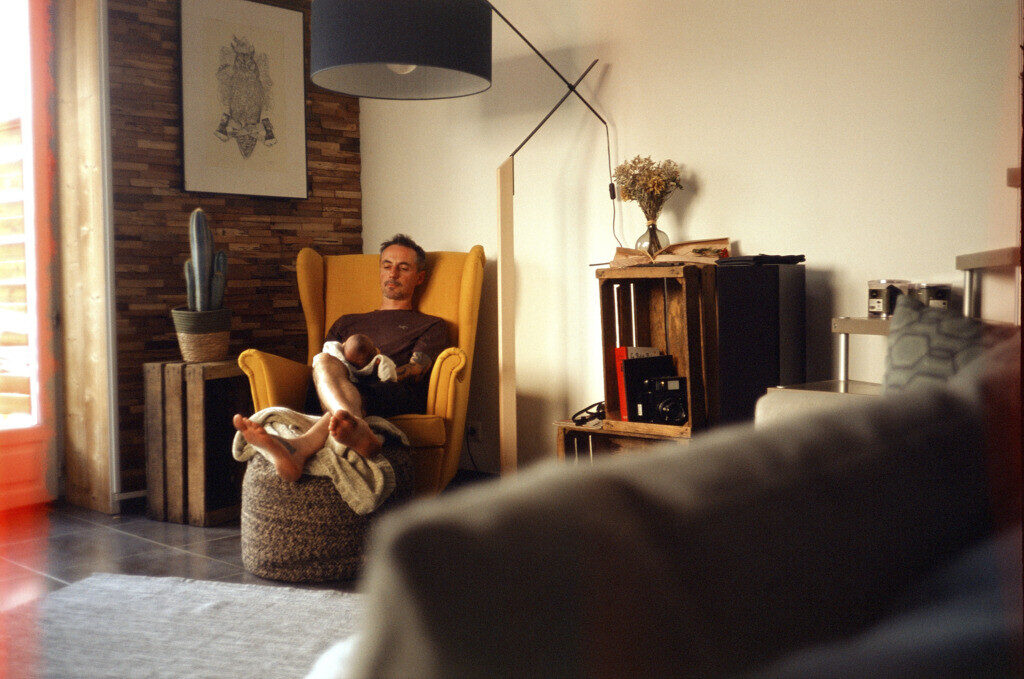
The first three months of Lia’s life were very special. The doctors warned us to be very vigilant about Lia’s condition and to protect her from almost everything. The idea was to first allow her to grow as much as possible so that she could gain strength before the first surgery. Every week we had to go to Grenoble to Dr. Lachaux to follow the evolution of her heart. The indicators were rising quite fast at the beginning because little ones evolve at a crazy speed and her left ventricle was having more and more trouble pumping blood into that little aortic valve. By the third month it had stabilized a bit. From the outside, Lia was still doing great and that was the weird part: on paper we had a sick child but in reality, everything was fine. For the first six weeks, after every visit to the cardiologist, I cried. Little by little, we got used to this new life and the new life we were going to have. I quickly let go of the idea of traveling and instead invested in our little house to make it a cozy little nest. I had been traveling all my life and settling down somewhere gave me the calm and stability I needed to deal with the challenges of Lia’s health.
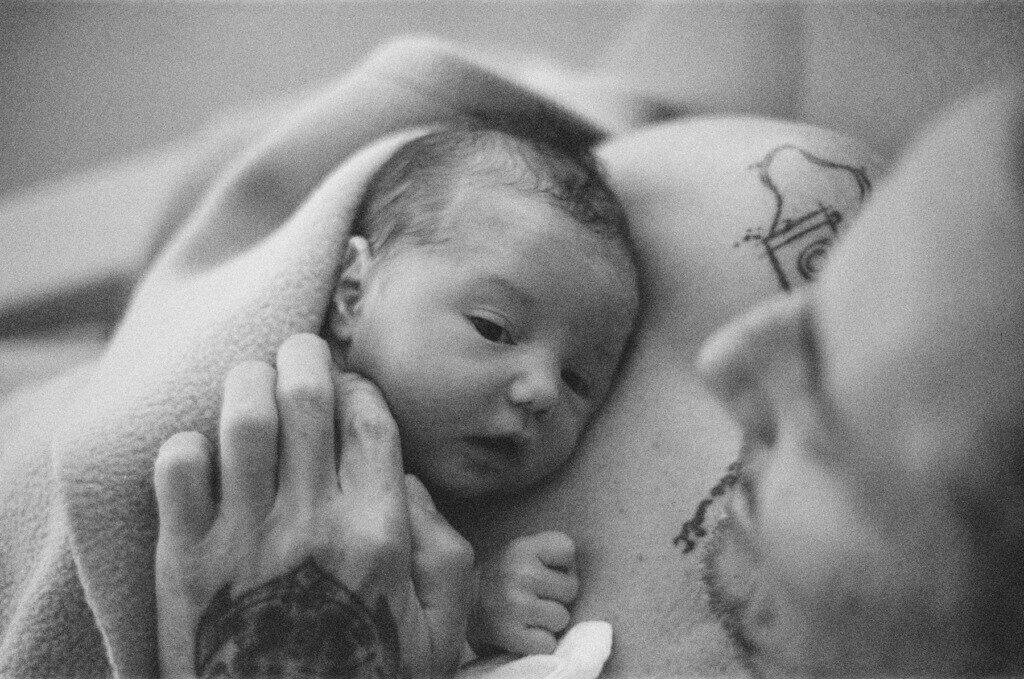
During these three months, we wanted to offer our little girl a beautiful life, while protecting her. We took her outside as much as possible around the house, showering her with love and confidence. Jeremy and I both received immense support from our environment: Both our families and friends gave us moral support like we had never known. This little girl erased any tension we may have had between us and made us go back to basics.
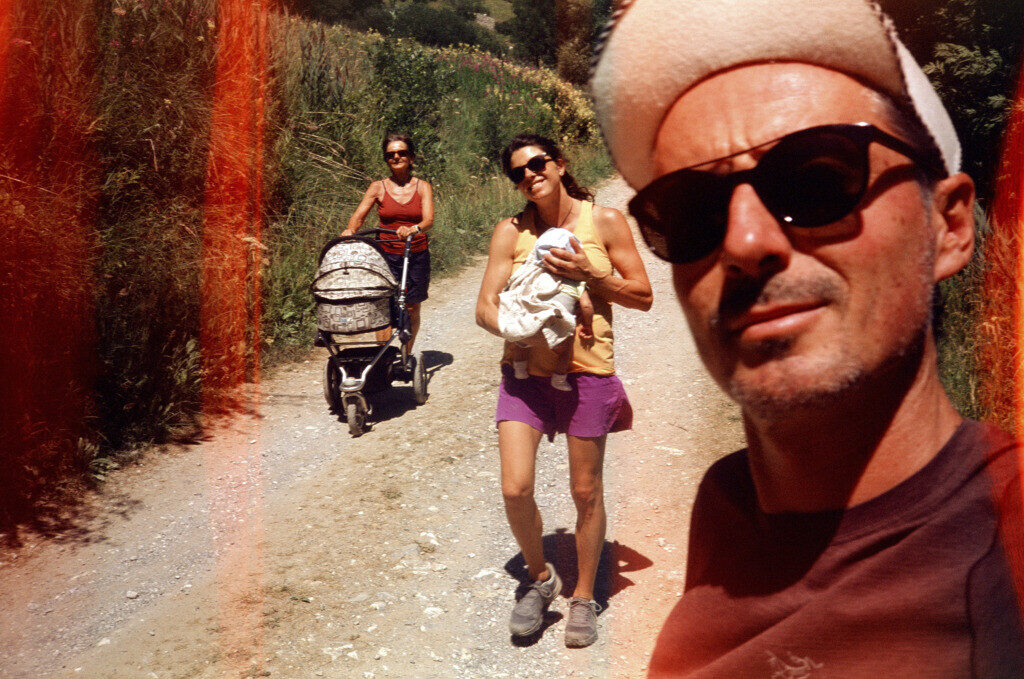
The older Lia got, the closer the time of the surgery got, the more fearful we became of losing her. I often found myself crying, I needed to get the emotions out through tears. But I also found comfort in climbing. Every time I found enormous joy in it, and this activity was a kind of therapy for me. I always came back refreshed and filled with joy and hope.
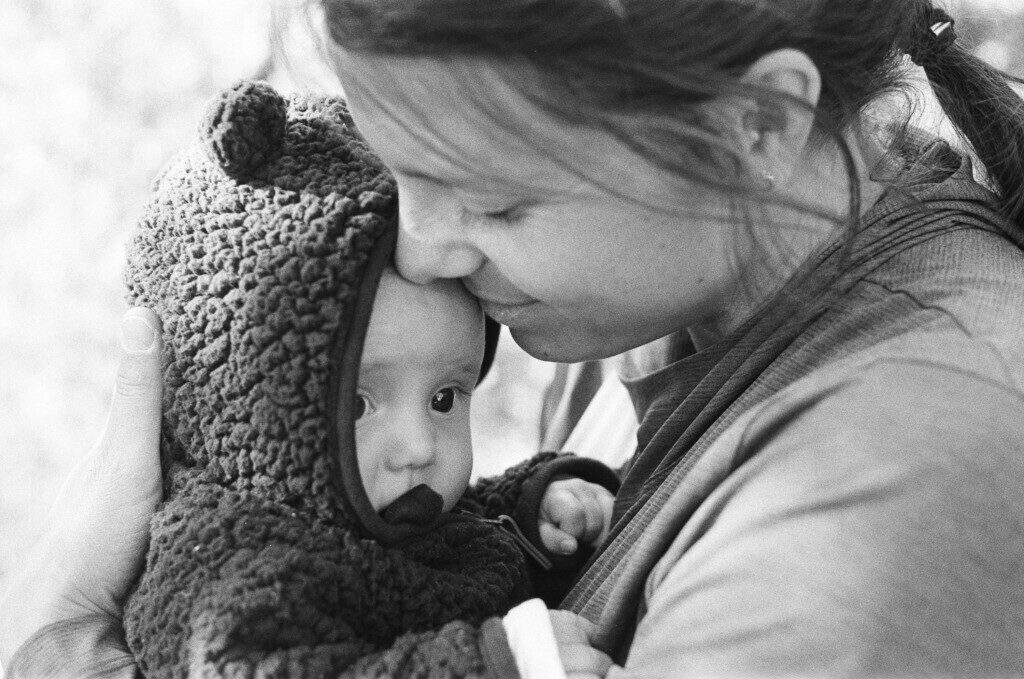
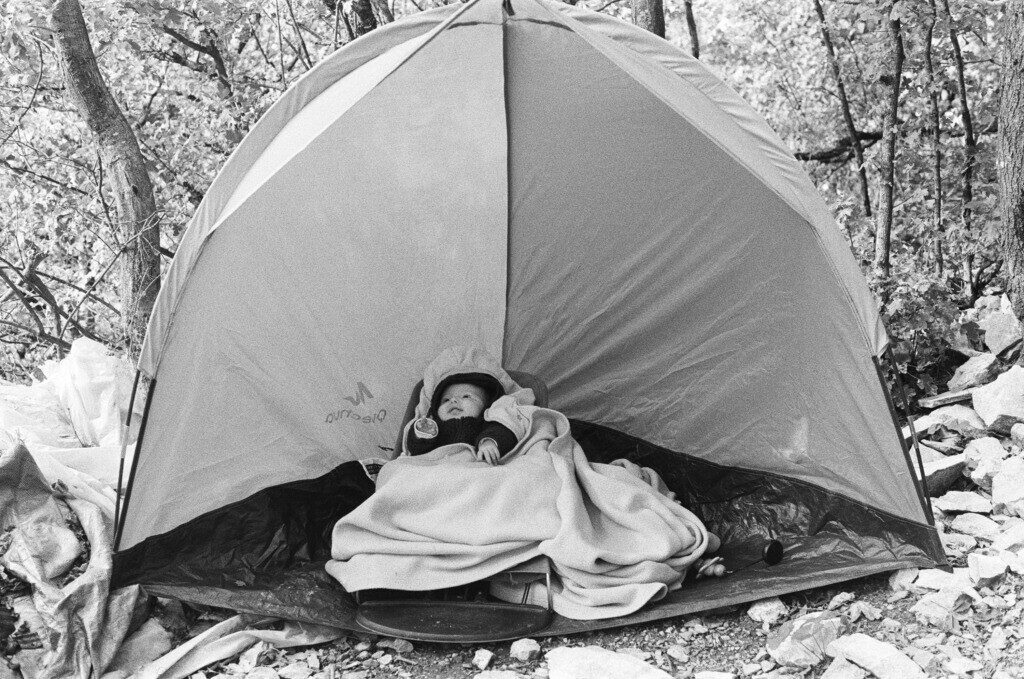
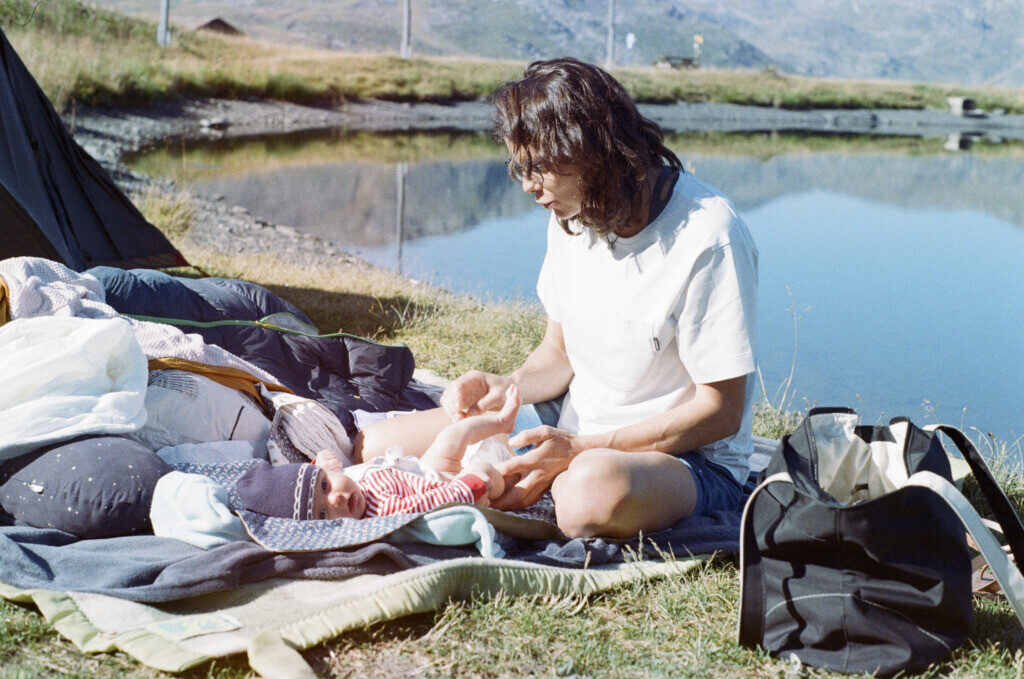
In the last week of September, we got the call from Lyon to tell us Lia was going to have the surgery the following week. We had already gone to Lyon to meet the surgeon Olivier Metton. A tall man with giant hands. I couldn’t take my eyes off his hands during our first meeting and I wondered how he was able to operate on little hearts with his giant hands. But in his gestures and his way of speaking, there was something magical and I had full confidence in his and his team’s ability to fix Lia’s little heart.
Yet despite my great confidence in Lia’s good care and life more generally, my heart stopped beating when Lyon called us to announce the date of the operation. We met online with the anesthesiologist and my knees were shaking non-stop. A week later we were driving to the hospital. On the way down to Moutiers, I felt like I was paralyzed. I had to stop and hand over the wheel to Jeremy, I had lost control of my body and my movements.
On October 4th, we went to the hospital: X-ray, ultrasound, blood test, blood pressure, temperature… it was a long afternoon. At night I slept with Lia in her room, Jeremy slept in the “Maison du petit monde“ (House of the small people), an accommodation for parents and family of hospitalized children.
During that night, all anxiety disappeared. Lia’s feedings were very gentle and she stayed in my arms for a long time. I felt the strength of this little girl and the calmness she had in her. At six o’clock, Jeremy came to us crying. He had spent the night alone in his room, tears of sadness flowing non-stop. Lia was lying on her bed and Jeremy put his head on her stomach and cried. That moment, she made a new gesture: she caressed his head, his hair, as if she wanted to assure him.
After two disinfectant baths, it was time to send Lia to the operating room.
Dr. Metton had explained to us exactly what was going to happen with Lia in the OR the month prior. After the general anesthesia, her chest was going to be opened up and her heart was going to be replaced by a machine. The idea seemed pretty crazy and unreal to me. She was going to have a tube in her neck to inject medication and take real time blood checks. Then the surgeon would go and check the problematic valve and decide on the spot what to do: Enlarge the valve, make it more functional, close it and hope that there would be no leakage due to a too large opening of the leaflets. Then close the chest, remove the machine and start her own little heart again. The whole operation would take 4 to 6 hours.
We found ourselves in the hallway of the hospital, the elevator had left with our little girl and we knew exactly what she had to go through. It was the most difficult moment in my life. I was suspended in a void, bearings lost, helpless, vulnerable and so fragile.
My lover and I had made a plan to get through the next few hours and we followed it. We took our bikes, a backpack with slippers and gym shorts and went to a block room that was close to the hospital, M-Roc. It felt good to be active. Cycling under a blue sky cleared our brains and the climb afterwards was the best thing to do to keep our minds off Lia‘s surgery. Once our arms were done, we forced ourselves to stay for a bite despite our lack of appetite. I was eating, looking at my phone next to the plate, waiting for the phone call from the surgeon that would come once the operation was over.
And finally, the phone rang:
“Dr. Metton on the phone. The operation went very well! Lia even gave us a nice surprise: I discovered that her valve is completely normal, but that at the exit there was a kind of tissue ball that created a blockage effect. I removed it and I dare to say that her problem is fixed once and for all. This little one is really amazing, in my 25 years in the business I have never seen this before. You can feel lucky, what a nice surprise!”
And then we burst with joy, our tears flowing, our hearts relieved. I called my family, I had trouble speaking, my voice interspersed with tears and laughter. The bike ride home felt like a release. Jeremy in front of me, I tried to keep up, he was going so fast!
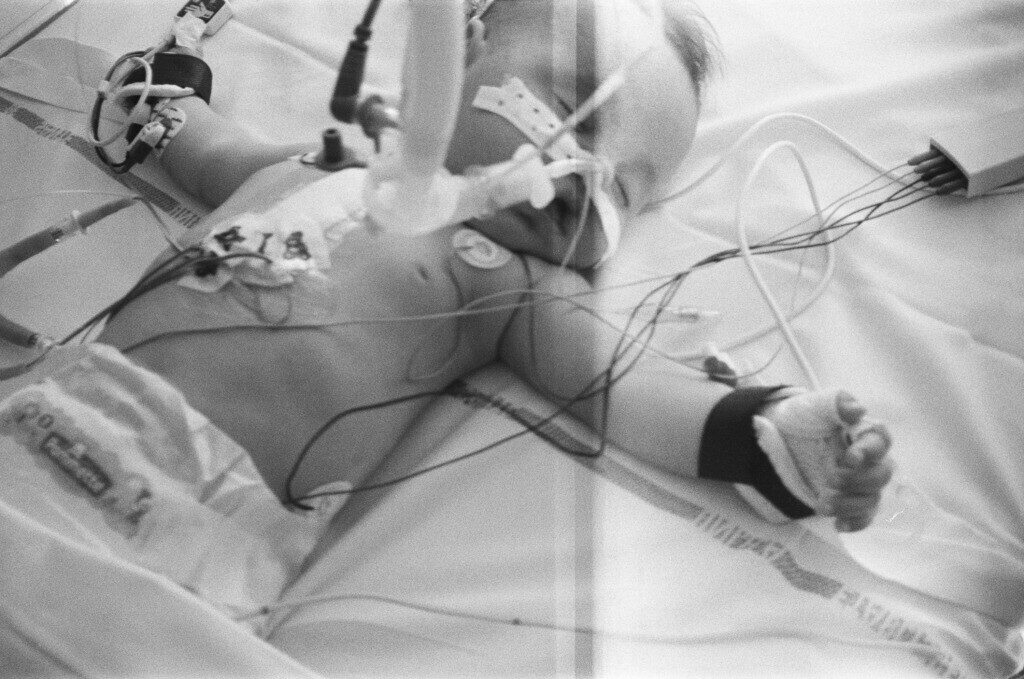
When we arrived at the hospital, Lia was still asleep. We discovered her with hoses and cables coming in and out of her in all directions, as we have been warned. The sight was not very pretty at all, but we were prepared and it was much less difficult to see her in that state than anticipated. Lia looked good, with a nice complexion, the big scar on her chest hidden by a bandage, her hands still tied to prevent her from tearing the cables by reflex when she would wake up. After half an hour, she came to slowly. We were there, right next to our little girl who had just produced a small miracle. It was like a rebirth. She was in pain, but her broken voice wouldn’t let her cries come out. After just a couple hours more, they were able to remove her breathing tube, she had undergone the operation very well and was able to breathe on her own. That same day around midnight, she could already take her first bottle with mom’s delicious milk, pumped with the famous milk pump.
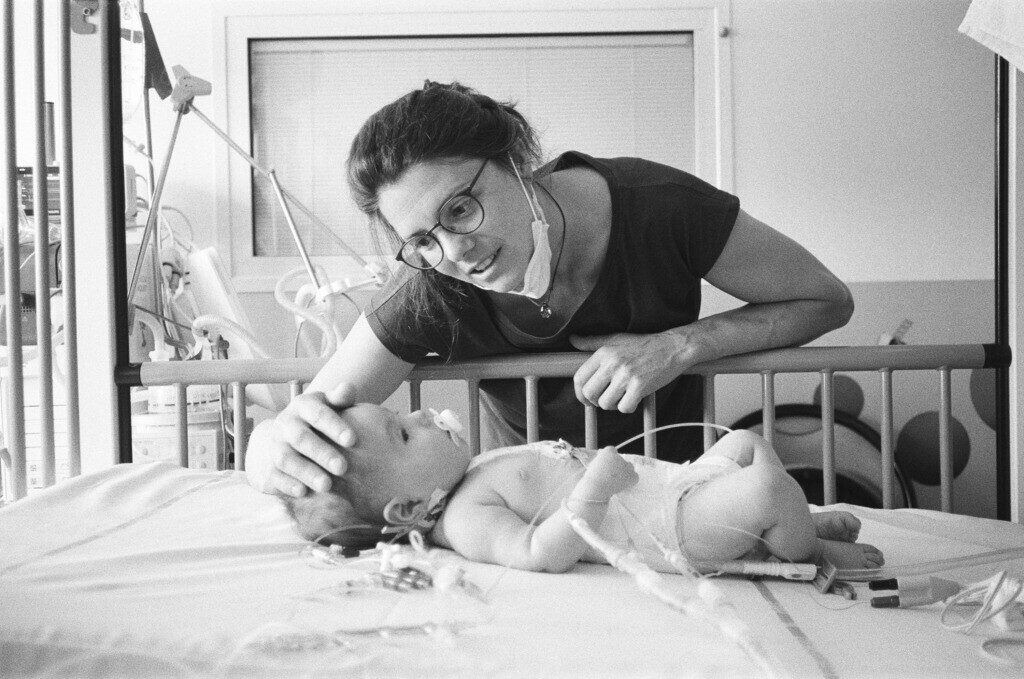
Jeremy and I took advantage of the first two days when she was in intensive care to take care of ourselves a bit. We slept two full nights in the Maison du petit monde to regain our strength and we accepted to leave Lia in the good hands of the doctors and nurses. She was still very high on pain killers and slept a lot. On the third day we were able to transfer her to another ward and from then on one of us could always be at her side. Lia was recovering at an incredible speed; every day we were able to remove more tubes: the pee tube, the three drainage tubes, the pacemaker wires, the central line and on the fifth day after the operation, we were able to remove the bandage to see her pirate scar. She was looking as beautiful as ever and a few hours later we were allowed to go home.
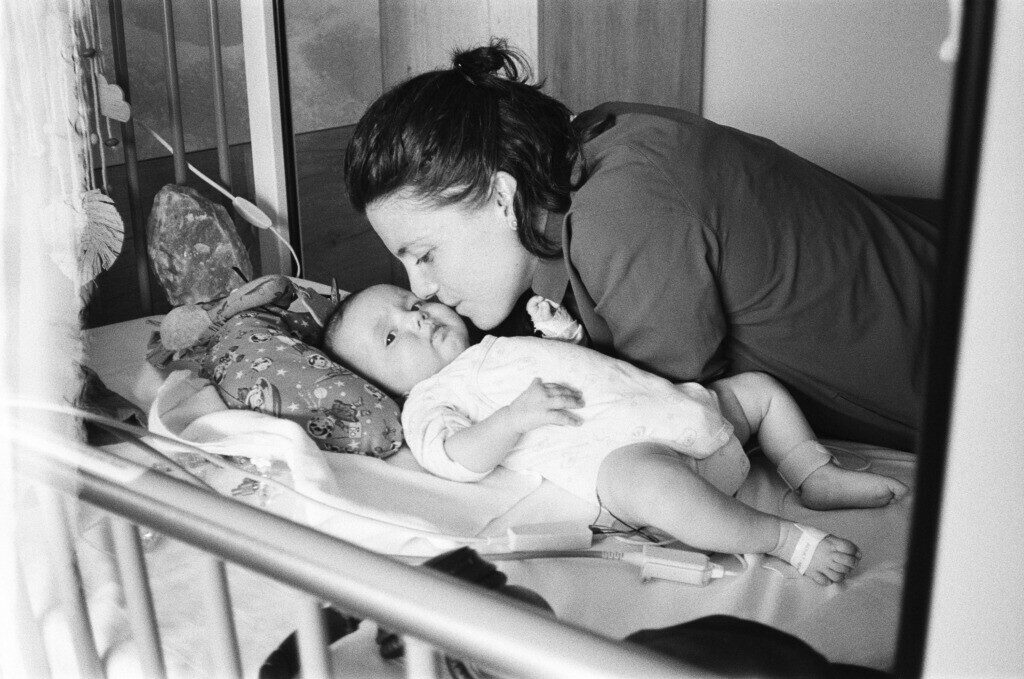
Since, we have still had check-ups every week in Grenoble. But considering her steadfast evolution, we will soon be able to space doctor visits out.
Becoming a parent is a difficult thing, but also such a beautiful one. In the last four months, I felt emotions like never in my life: Fear, joy, love… everything takes a new dimension and I feel alive like never before.
This difficult beginning with our little one has deeply marked and transformed me. I received compassion from all the parents we informed. We received so much support and love from people we know closely and even from people we don’t know personally. I feel like children bring us together with all the parents in the world, because everyone is worried about their children and everyone can imagine the depth of fear we went through during this heavy period.
Lia is now a completely normal child. We are one month post-op and sometimes I have already forgotten what we have been through. She is so lively that it seems unreal. Sometimes, images of the hospital come back to me and remind me of how lucky we were. I realize that we will be able to slowly return to the life we dreamed of: a life of living outside, traveling, discovering the world… Before all this, I took this way of life for granted. And today, I see it as a huge gift that life has offered us.
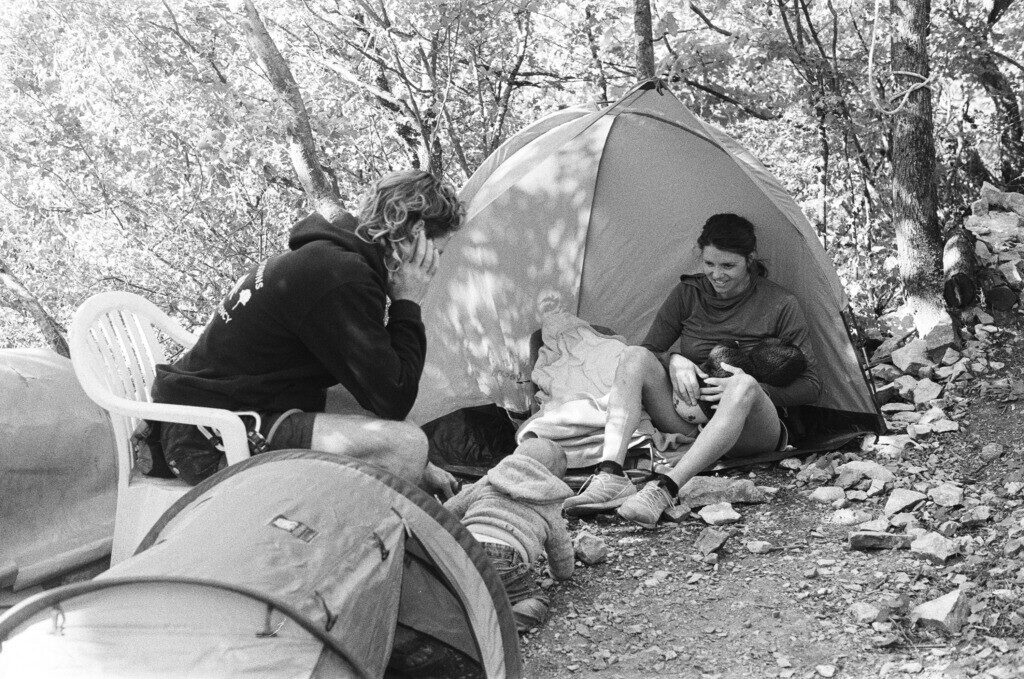
I would like to thank two people in particular: the cardiologist Mathias Lachaux in Grenoble and the surgeon Olivier Metton in Lyon. They and their teams are performing miracles daily. They save the lives of our little ones and they care for them with such attention and vigilance. I feel lucky to live in a country where the medical system works so well and at a time when it is so advanced. Thanks to them our daughter has a body that functions normally now and she will be able to lead a normal life. What a gift!
From the bottom of my heart, I would also like to thank every person who listened to our story and took a little weight off of our shoulders by doing so. I don’t wish for anyone to have to go through what we went through, but by writing this story, I would like to be able to offer support if it were to happen to you. Because I too have met parents who were willing to share their story with us, and it gave us hope. Thank you all, thank you life!
